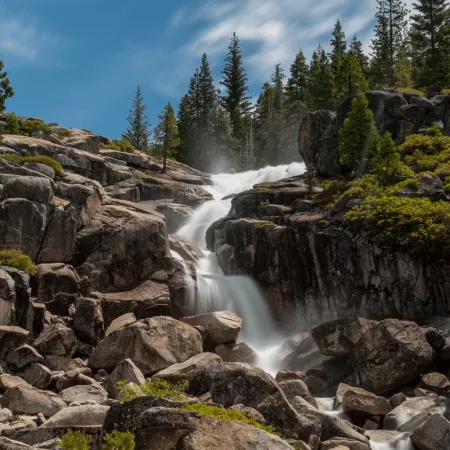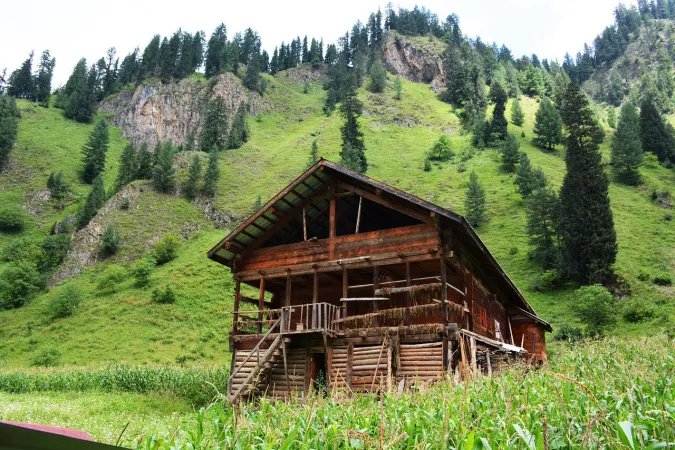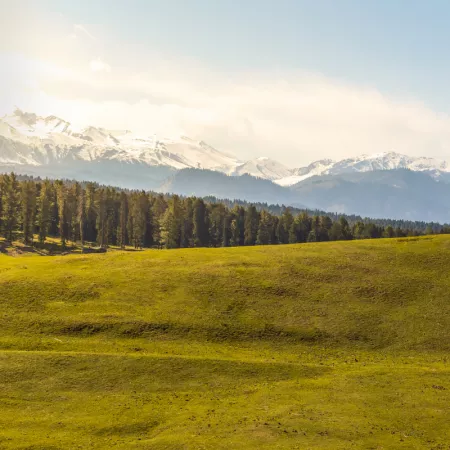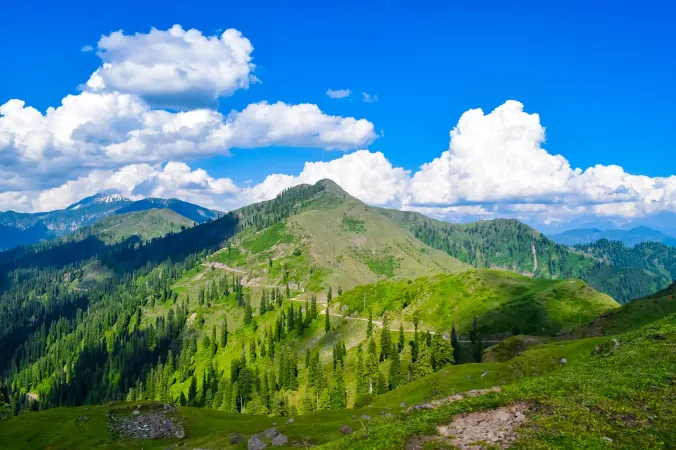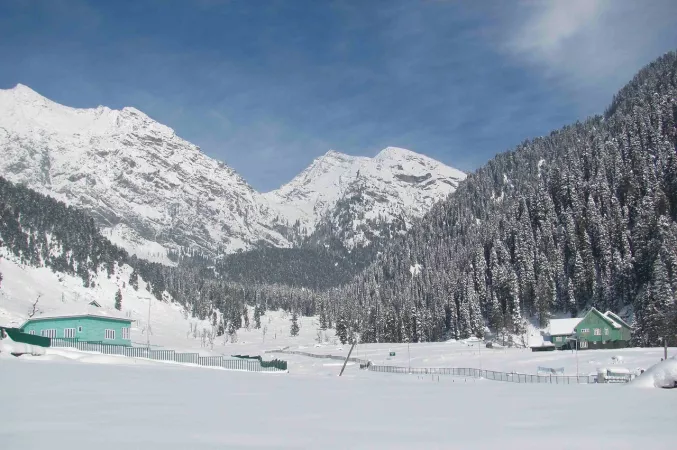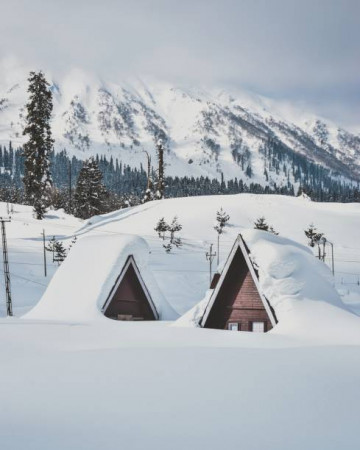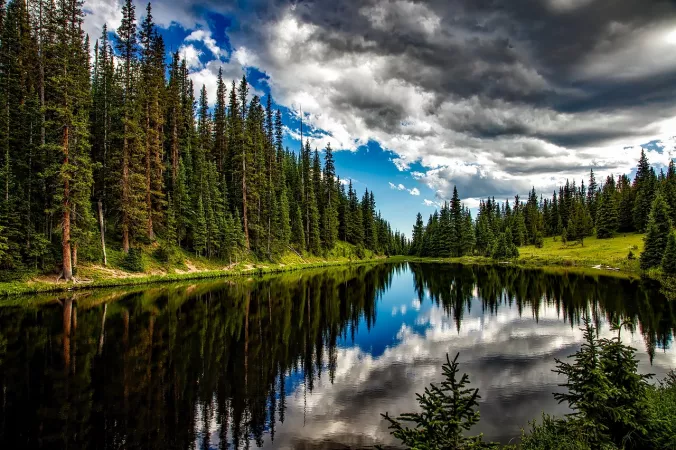
Kokernag
Duration
2 to 4 Days
2 to 4 Days
Best time to visit
Apr-Aug
Apr-Aug
Theme
Hill Station, Waterfront, Nature
Hill Station, Waterfront, Nature
Kokernag Travel Guide
Kokernag, located in the breathtaking region of Jammu and Kashmir, is a hidden gem known for its stunning landscapes, lush greenery, and crystal-clear springs. This charming town is nestled in the lap of the Himalayas, offering a perfect blend of natural beauty and tranquility. Kokernag is famous for its enchanting gardens, picturesque valleys, and rich cultural heritage, making it a must-visit destination for nature lovers and adventure enthusiasts alike.Top Attractions in Kokernag
- Botanical Garden
- Kokernag Spring
- Daksum
- Verinag Spring
- Kokernag Waterfall
Kokernag is Famous for
Natural springs and lush gardens.Top Attractions in Kokernag
- Explore the Botanical Garden
- Relax by the Kokernag Spring
- Take a scenic drive to Daksum
- Visit the historic Verinag Spring
- Admire the beauty of Kokernag Waterfall
What's Great about Travelling to Kokernag?
- Perfect destination for nature lovers
- Great for adventure enthusiasts
- Offers a peaceful and serene environment
What's Not So Great about Travelling to Kokernag?
- Limited accommodation options
- Remote location may not be suitable for all travelers
- Weather can be unpredictable
Travel Tips for Kokernag
- Obtain necessary permits for visiting certain areas
- Carry appropriate clothing for changing weather conditions
- Respect the local culture and customs
Important Kokernag trip information
- Ideal Duration: 2-3 days
- Best Time to Visit: April to June
- Nearby Airports and Railway Stations: Srinagar Airport and Anantnag Railway Station
FAQ's on Kokernag
Q1: What is the best time to visit Kokernag?
The best time to visit Kokernag is during the summer months from May to July when the weather is pleasant, and the famous botanical garden is in full bloom. Avoid the monsoon season from August to September due to heavy rainfall. Winter from November to February can be cold but offers a unique experience for snow lovers.
Q2: Do I need a visa to travel to Kokernag?
Tourists visiting Kokernag will need a valid Indian visa. However, if you are from a neighboring country like Nepal or Bhutan, you may have certain exceptions. Check with the local embassy or consulate for specific visa requirements before your travel.
Q3: What are the must-visit attractions in Kokernag?
Must-visit attractions in Kokernag include the enchanting Kokernag Botanical Garden, the pristine Breng Valley, and the picturesque Daksum. Don't miss the stunning Koker Nag Spring and the captivating Yaripora River for a truly immersive experience in nature.
Q4: Is Kokernag a safe place to travel?
Kokernag is generally a safe destination for travelers. However, it is advisable to stay cautious, especially in remote areas or while trekking. Follow standard safety precautions, avoid isolated areas at night, and respect local customs to ensure a safe and enjoyable trip.
Q5: What is the local currency in Kokernag and can I use credit cards?
The local currency in Kokernag is the Indian Rupee (INR). While ATMs are available in major towns, it is advisable to carry sufficient cash, especially in rural areas. Credit cards are accepted in some hotels and larger establishments, but it's recommended to have cash for smaller vendors and local markets.
Q6: What is the local cuisine like in Kokernag?
The local cuisine in Kokernag offers a blend of Kashmiri, Mughlai, and traditional Indian flavors. Indulge in dishes like Rogan Josh, Gushtaba, and Yakhni for a taste of authentic Kashmiri cuisine. Vegetarians can savor Dum Aloo, Chaman, and Nadru Yakhni. Don't miss the local bread like Lavasa and Tsot for a complete culinary experience.
Q7: What transportation options are available in Kokernag?
Transportation options in Kokernag include buses, taxis, and auto-rickshaws for local travel. Renting a car or hiring a private driver is a convenient way to explore the scenic beauty of the region. Public transport is limited in remote areas, so it's advisable to plan your transportation in advance for a hassle-free journey.
Q8: Are there any cultural norms or etiquette I should be aware of when visiting Kokernag?
When visiting Kokernag, it's important to respect local customs and traditions. Modest clothing is recommended, especially when visiting religious sites. Always seek permission before taking photographs of locals, and avoid public displays of affection. Greeting with a "Salaam" is common, and it's polite to accept tea or snacks when offered by locals. Embrace the warmth and hospitality of the people while being mindful of their cultural sensitivities.
Q9: I am a travel agent. How can I buy travel leads of Kokernag?
Register yourself as a travel agent at agents.tripclap.com and then you can buy travel leads to Kokernag once your account is approved. For more details contact our support team at +91-8069186564 or support@tripclap.com

